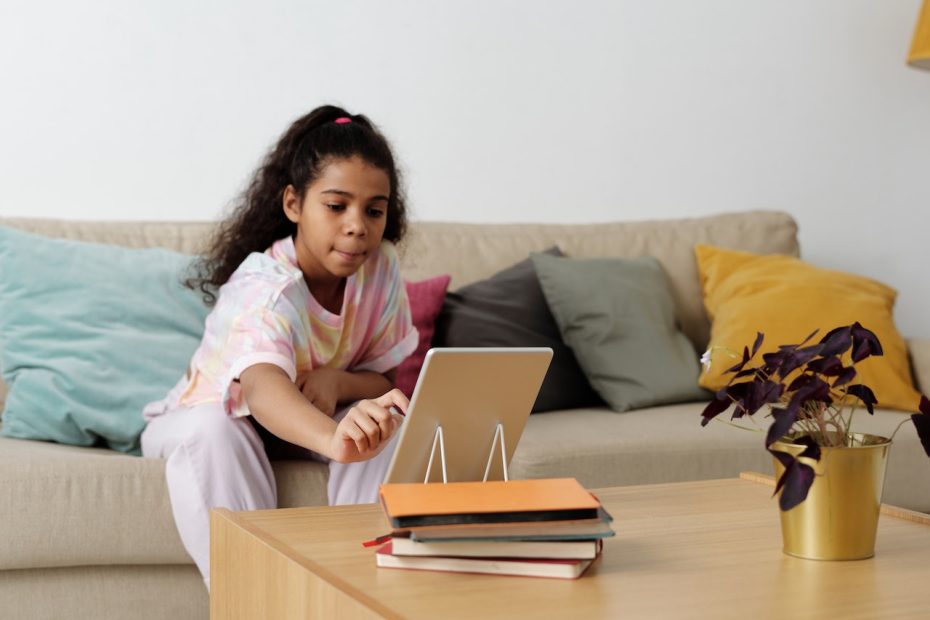The Importance of Parental Controls in Protecting Your Kids Privacy and Data Security
Parental controls are an important tool for protecting your children’s privacy and data security. They allow parents to monitor their children’s online activities, set limits on what they can access, and block inappropriate content. By using parental controls, parents can ensure that their kids are not exposed to dangerous or inappropriate material online.
In addition to providing protection from malicious content, parental controls also help protect your child’s personal information. Many websites require users to provide personal information such as name, address, phone number, and email address in order to use the site. With parental controls in place, you can limit the amount of personal information your child is sharing with these sites and ensure that it is kept secure. This helps protect your child from identity theft and other forms of cybercrime.
How to Set Up Parental Controls to Safeguard Your Childrens Online Activity
Parental controls are an important tool for parents to help protect their children from online dangers. Setting up parental controls can be a daunting task, but it is essential in order to ensure that your child’s online activity is safe and secure. Here are some tips on how to set up parental controls to safeguard your children’s online activity.
First, you should decide which type of parental control you want to use. There are many different types of parental control software available, such as Net Nanny or Kaspersky Safe Kids. These programs allow you to monitor and restrict your child’s internet usage, block inappropriate websites, and even limit the amount of time they spend online. Once you have chosen the right program for your family, you will need to install it on all devices used by your children.
Next, you should create user accounts for each of your children so that you can customize the settings for each individual user. This will allow you to tailor the restrictions based on age and maturity level. You can also set up specific rules for each account such as blocking certain websites or limiting access to certain apps or games. Finally, make sure that all devices used by your children have strong passwords and two-factor authentication enabled so that only authorized users can access them.
Top Parental Control Apps and Software for Ensuring Your Kids Online Safety
Parental control apps and software are becoming increasingly popular as parents look for ways to ensure their children’s online safety. These tools allow parents to monitor their child’s online activity, block inappropriate content, and set time limits on device usage. With the right parental control app or software, parents can have peace of mind knowing that their kids are safe while they’re browsing the internet.
There are a variety of parental control apps and software available on the market today. Some of the most popular include Qustodio, Norton Family Premier, Kaspersky Safe Kids, and Net Nanny. Each of these programs offers different features such as web filtering, activity monitoring, location tracking, and more. Depending on your needs, you can choose the best option for your family. Additionally, many of these programs offer free trials so you can test them out before committing to a purchase.
Common Risks to Your Kids Privacy and Data Security Online and How to Mitigate Them
Online privacy and data security are two of the most important issues facing parents today. With the rise of social media, online gaming, and other digital activities, it is essential that parents understand the risks to their children’s privacy and data security online. Common risks include identity theft, cyberbullying, exposure to inappropriate content, and more. It is important for parents to be aware of these risks and take steps to mitigate them.
One way to protect your child’s online privacy and data security is by setting up parental controls on all devices used by your child. This will allow you to monitor their activity and block any websites or apps that may pose a risk. Additionally, it is important to talk with your child about internet safety and make sure they understand the importance of keeping their personal information private. You should also encourage them not to share passwords or other sensitive information with anyone online. Finally, make sure you have an open dialogue with your child about any concerns they may have regarding their online activities so that you can address them in a timely manner.
Balancing Your Kids Online Freedom with Their Privacy and Data Security Tips for Parents
As parents, it is our responsibility to ensure that our children are safe online. Balancing their freedom with their privacy and data security can be a difficult task. It is important to set boundaries for your kids when it comes to the internet and social media. Here are some tips for parents on how to balance their kids’ online freedom with their privacy and data security:
First, make sure you have an open dialogue with your children about the importance of protecting their personal information online. Explain why they should not share passwords or other sensitive information with anyone, even if they think they know them well. Encourage them to use strong passwords and two-factor authentication whenever possible. Additionally, remind them that anything posted online can be seen by anyone, so it’s important to think twice before posting something that could potentially harm them in the future.
Second, monitor your child’s activity online and keep track of what websites they visit and who they interact with. Make sure you understand the privacy settings of each website or app your child uses so you can adjust them as needed. You may also want to consider using parental control software or apps that allow you to block certain sites or limit screen time. Finally, talk to your kids about cyberbullying and explain why it is wrong and how it can affect others negatively.
